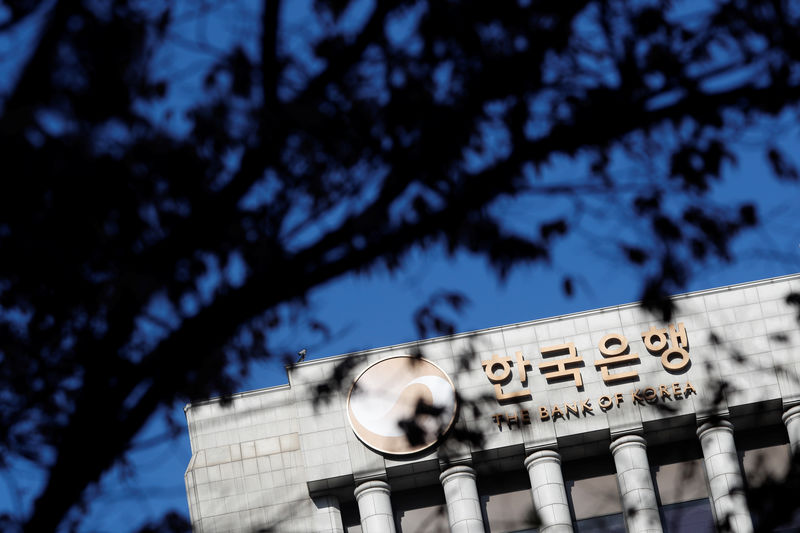 © Reuters. The logo of the Bank of Korea is seen in Seoul
© Reuters. The logo of the Bank of Korea is seen in SeoulBy Cynthia Kim and Hayoung Choi
SEOUL (Reuters) – The Bank of Korea left its base rate unchanged on Friday for a sixth straight monetary policy meeting, as a fragile job market and weak inflation held policymakers back from tightening interest rates further.
The Bank of Korea kept its seven-day repurchase rate
Markets were unfazed by the widely expected decision. The won
Growing doubts about the domestic job market and stagnant household income growth have tempered expectations of policy tightening, even as rising interest rates in the U.S. have raised fears about capital outflows.
Headline inflation has stayed below the bank’s target of 2 percent since October 2017, allowing the BOK board to be patient in its approach to policy normalization.
“Growth slowdown concerns would outweigh capital outflow concerns, dissuading the BOK from hiking rates at this meeting,” Ma Tieying, an economist at DBS said before the rate decision.
“Although the Turkey crisis has weighed on emerging market assets, the won still outperformed, thanks to Korea’s relatively strong fundamentals.”
The economy created only 5,000 jobs in July from a year earlier, the smallest annual gain since January 2010, while average disposable household incomes declined in annual terms over the second quarter.
South Korea has drafted a decade-high expansion in fiscal spending for next year, allocating 470.5 trillion won ($424.21 billion), to creating jobs and shoring up growth.
Eleven out of 19 economists surveyed said one interest rate hike is likely before the end of the year, to track looming rate hikes at the U.S. Federal Reserve in September and December.
The Bank of Korea has two monetary meetings are slated on Oct 18 and Nov 30.
In Reuters poll, 13 out of 19 respondents foresaw at least one dissenter.
Fusion Media or anyone involved with Fusion Media will not accept any liability for loss or damage as a result of reliance on the information including data, quotes, charts and buy/sell signals contained within this website. Please be fully informed regarding the risks and costs associated with trading the financial markets, it is one of the riskiest investment forms possible.
Source: Investing.com



























